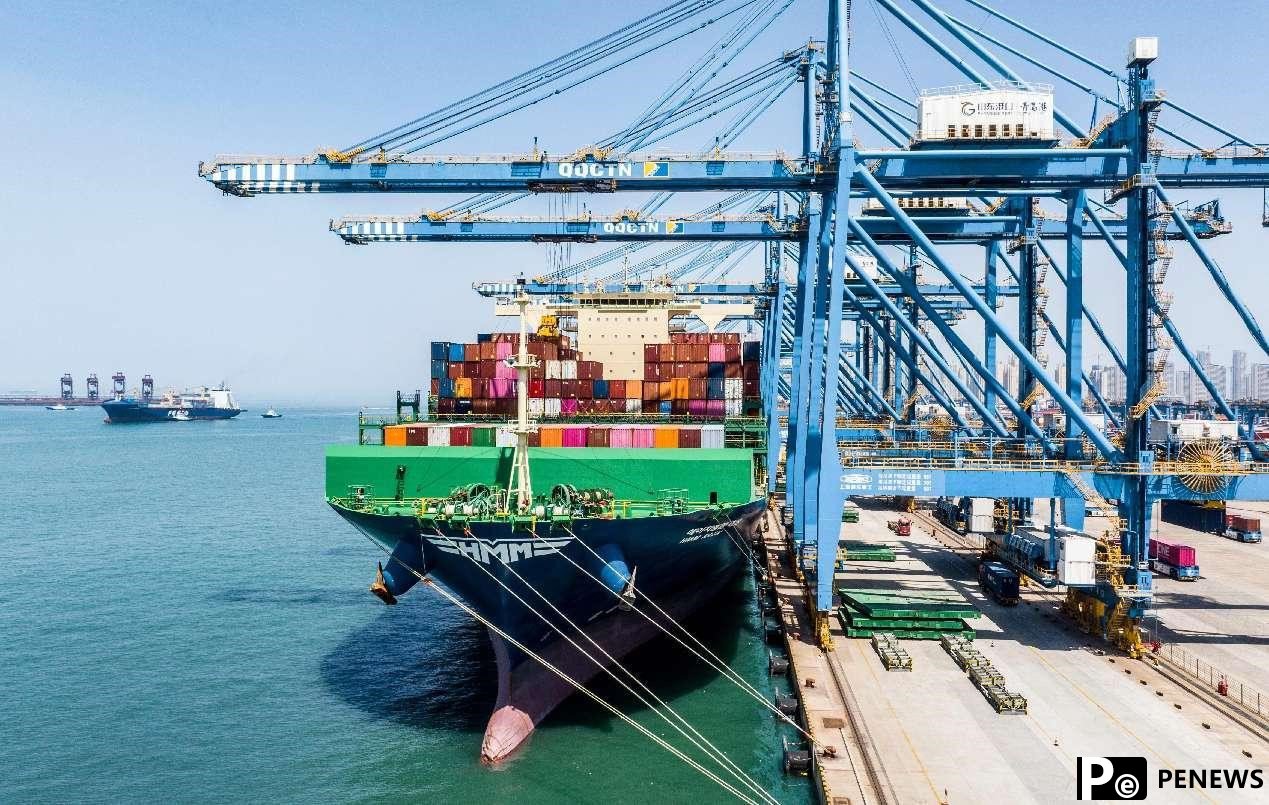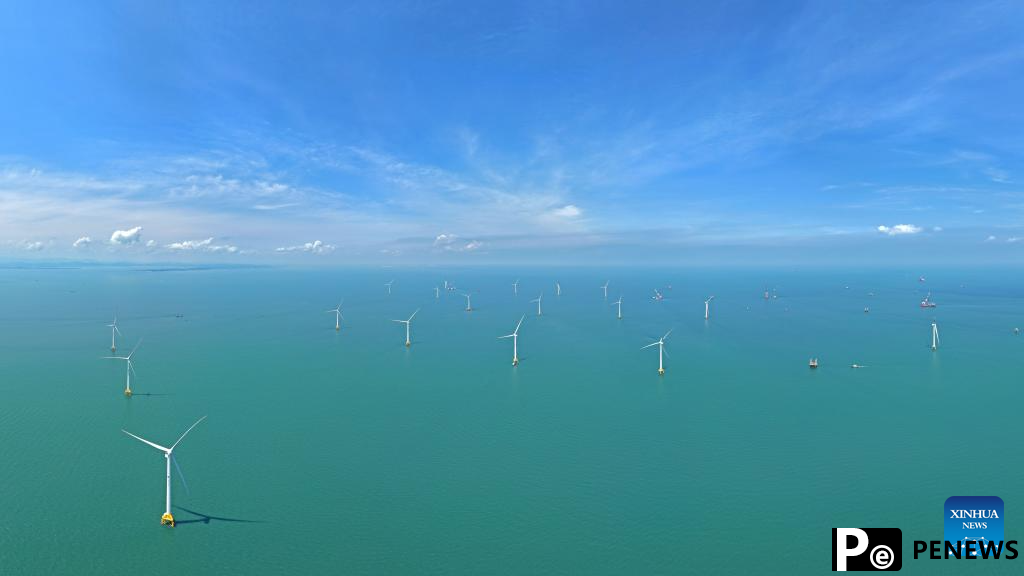Home>>
Expanding China-Europe freight train service boosts trade, prosperity(Xinhua) 08:07, May 27, 2024
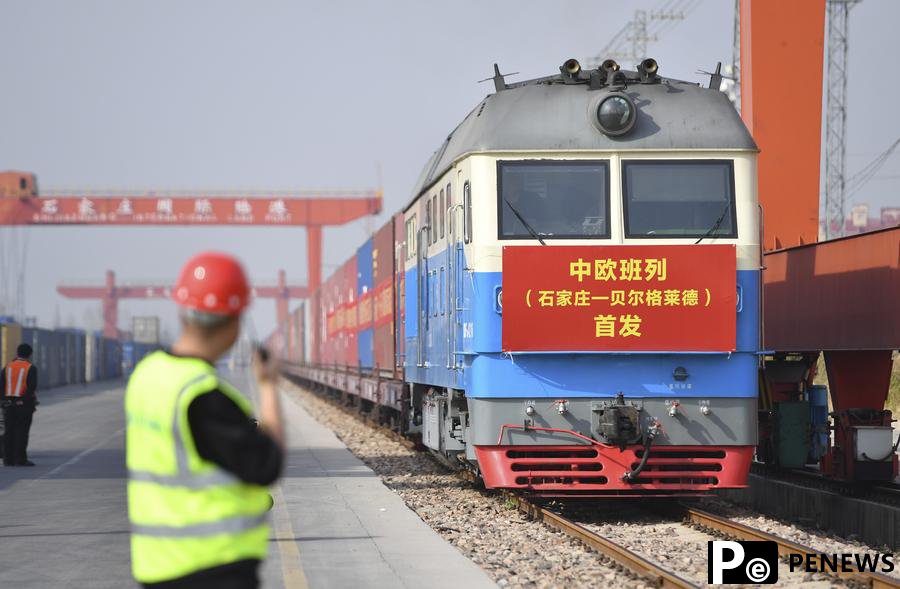
This photo taken on March 21, 2024 shows a China-Europe freight train bound for Belgrade, the capital of Serbia, departs from the Shijiazhuang international land port in north China's Hebei Province. (Photo by Zhang Xiaofeng/Xinhua)
BEIJING, May 26 (Xinhua) -- In 2011, a train loaded with electronic products sounded its horn and embarked on a journey from Tuanjiecun Station in southwest China's Chongqing to Duisburg in Germany, marking the inauguration of the China-Europe freight train service.
Initially, the small station saw only one train depart each month. Now, it has become a first-class terminal, from which over 10 trains leave daily, reaching more than 100 cities across Asia and Europe. This epitomizes the rapid growth of the China-Europe freight train service.
As of Saturday, the total number of China-Europe freight train trips has surpassed 90,000. This extensive network currently serves 223 cities in 25 European countries and over 100 cities in 11 Asian countries, with its service covering almost the entire Eurasian continent, according to China State Railway Group Co., Ltd. (China Railway).
With deepening regional economic ties, the China-Europe freight train service -- a flagship program of the Belt and Road Initiative (BRI) -- has proven to be both a vital artery ensuring the continuous flow of commodities and a stabilizer enhancing the resilience of global supply chains amidst global turmoil.
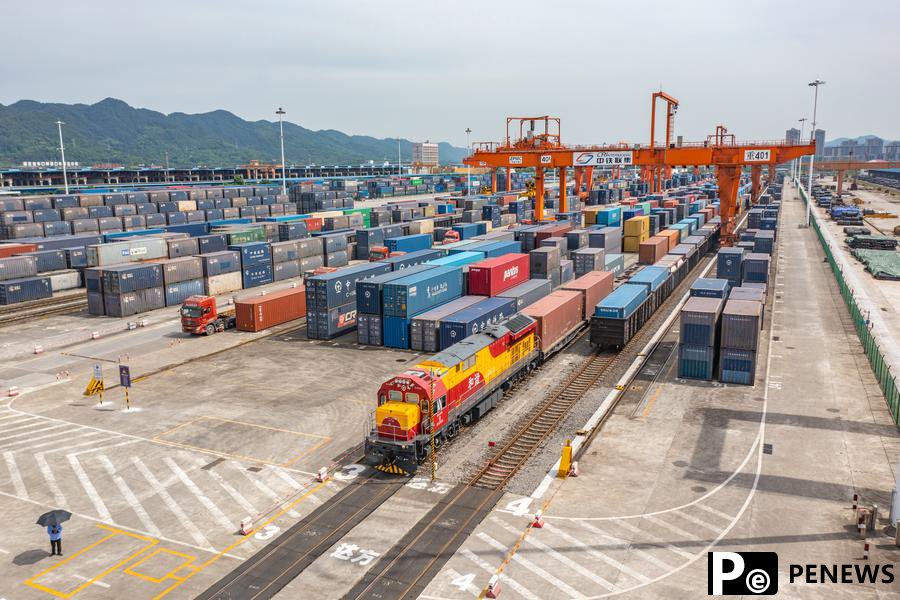
A drone photo taken on May 5, 2024 shows a China-Europe freight train waiting to depart from the Tuanjiecun Station in the Chongqing International Logistics Hub Park in southwest China's Chongqing Municipality. (Xinhua/Huang Wei)
GROWING POPULARITY
From 2016 to 2023, the annual number of China-Europe freight train trips surged from 1,702 to over 17,000. The value of goods transported by this service skyrocketed from 8 billion U.S. dollars in 2016 to 56.7 billion U.S. dollars in 2023.
As the Red Sea crisis disrupts vital shipping lanes and global supply chains, the China-Europe freight train service has attracted an increasing number of freight forwarders due to its efficiency, reliability, and cost-effectiveness.
The Suez Canal, through which 12 percent of global trade used to pass, saw traffic drop by 66 percent at the start of April, compared with a year earlier, said a recent report by British newspaper The Guardian. Many shipping firms are now diverting vessels to the safer, but much longer and more costly, route around the tip of southern Africa, passing the Cape of Good Hope. This can add 10 days to a journey and increase fuel costs by 40 percent.
Some companies have switched to rail freight, with the number of trains leaving China for Europe dramatically increasing in recent months, Marco Forgione, director general at the Institute of Export & International Trade, told the newspaper.
The China Railway reported earlier this month that the number of China-Europe freight train services increased by 10 percent year on year to 6,184 trips in the first four months of 2024.
With an office in Chengdu, China, Polish company Real Logistics has been engaged in the China-Europe freight train service business for nearly a decade. General Manager Pawel Moskala told Xinhua that after the outbreak of the Red Sea crisis, maritime transport between China and Europe was severely affected, while the China-Europe freight train service has played a significant complementary role in supporting goods transportation.
"Currently, the advantages of the China-Europe freight train service are evident, and demand remains relatively high. Although it is difficult to predict long-term trends in sea freight prices, overall, given the current international situation, rail transport is expected to grow substantially, and the China-Europe freight train service will also see growth and will continue to play an indispensable role," he said.
Echoing this sentiment, He Daoguo, general manager of Chongqing Meilian International Warehouse &Transport (Group) Co., Ltd., stated, "Train trips departing from Chongqing to Europe can now arrive within 15-20 days, which is 7-10 days faster than shipping through the Red Sea. China-Europe freight trains have acted as a stabilizer for global supply chains due to their resilience, stability, and punctuality."
Chen Fengying, a researcher at the China Institutes of Contemporary International Relations, noted that in the unstable geopolitical context of the Israeli-Palestinian conflict, sea transportation has been affected and prices are rising, whereas land transportation remains relatively cheap and safe.
"The China-Europe freight train service has, to a certain extent, ensured the security and stability of industrial and supply chains, injected stability into economic and trade exchanges, and played a significant role in maintaining stable trade relations worldwide," the scholar added.
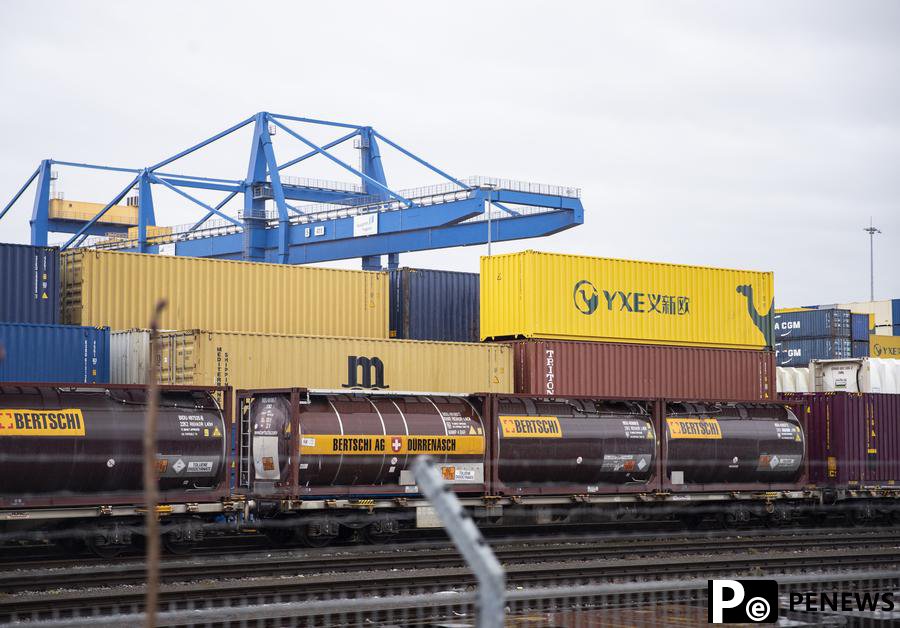
This photo taken on March 28, 2024 shows containers at a freight terminal in Duisburg, Germany. (Xinhua/Zhang Fan)
EXPANDING SERVICE







